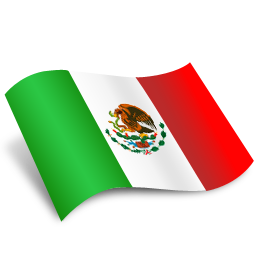Foreign Affairs
Mexican Left-Wing Populist Lopez Obrador Poised For Victory As Rivals Concede Defeat

Mexican flag (By Lucindasantos - Own work, CC BY-SA 3.0, https://commons.wikimedia.org/w/index.php?curid=15248770)
Nationalist firebrand Andres Manuel Lopez Obrador will almost certainly be declared the winner of Mexico’s presidential election on Monday, capping one of the most violent campaign seasons in recent memory and ushering in a new era of nationalism in Mexican politics.
Exit polling Sunday night showed Lopez Obrador with a decisive lead of between 16 and 26 percentage points over his nearest rival, conservative candidate Ricardo Anaya, Reuters reported.
Jose Antonio Meade, candidate of the ruling Institutional Revolutionary Party (PRI), was running in third place and independent candidate Jaime Rodriguez was trailing in a distant fourth, according to the exit polls. All three of Lopez Obrador’s opponents conceded defeat in televised addresses Sunday night.
Barring a surprise announcement by Mexico’s electoral authority, which is set to release a preliminary result at 12 a.m. EDT, the three-time presidential candidate and former mayor of Mexico City will succeed current President Enrique Peña Nieto on Dec. 1.
A runner-up in Mexico’s 2006 and 2012 elections, Lopez Obrador campaigned on a left-wing populist platform bolstered by nationalist rhetoric. His National Regeneration Movement — MORENA in the Spanish acronym — sought to appeal to leftists, economic nationalists and social conservatives alike with promises of higher welfare spending and better pay for workers to reduce Mexico’s social and economic inequality.
Lopez Obradaor – popularly known by his initials, AMLO — also emerged as Mexico’s top antagonist of President Donald Trump, which could portend a rocky relationship with Washington. He launched his presidential bid in the Mexican border city of Juarez, promising that he would make Mexico a “free, sovereign and independent” nation that would not be the “piñata” of any foreign country, a clear rebuke of Trump’s aggressive stance toward Mexico on immigration and trade.
AMLO even published a book entitled “Oye, Trump” (“Listen, Trump”) that denounced Trump’s plans to build a wall on the U.S.-Mexico border and his supposed “attempts to persecute migrant workers.”
Ironically, the impetuous AMLO ran a decidedly Trump-like campaign, positioning himself as a political outsider who would root out political corruption and ease Mexico’s cartel-fueled bloodshed. Echoing Trump’s promises to “drain the swamp” in Washington, AMLO railed against the “mafia of power” that has ruled Mexico for most of its modern history, referring to Pena Nieto’s party, the PRI.
“The corrupt regime is coming to its end,” AMLO said at his final campaign event Wednesday, according to The Associated Press. “We represent modernity forged from below.”
AMLO’s populist appeals proved effective on a Mexican public that has seen drug cartel violence skyrocket in the final years of Peña Nieto’s administration. In 2017, Mexico suffered its most violent year in nearly a generation, and the murders have remained high well into 2018. The political system itself was no exception — at least 100 officeholders and political candidates were murdered across Mexico in the run-up to Sunday’s elections.
Downballot, the MORENA party rode AMLO’s success to victories in at least four gubernatorial races, plus the contest for head of government in the capital of Mexico City. It is also poised to have a significant plurality in the Mexican Senate as part of a coalition with two other leftist parties, the Social Encounter Party and the Labor Party.
When he takes office, AMLO will inherit a dispute with Washington over the North American Free Trade Agreement, tariffs, and illegal immigration across the U.S.-Mexico border. He has indicated he will try to make a deal with Trump in which Mexico will clamp down on illegal immigration in return for economic aid.
Send tips to [email protected].
All content created by the Daily Caller News Foundation, an independent and nonpartisan newswire service, is available without charge to any legitimate news publisher that can provide a large audience. All republished articles must include our logo, our reporter’s byline and their DCNF affiliation. For any questions about our guidelines or partnering with us, please contact [email protected].

